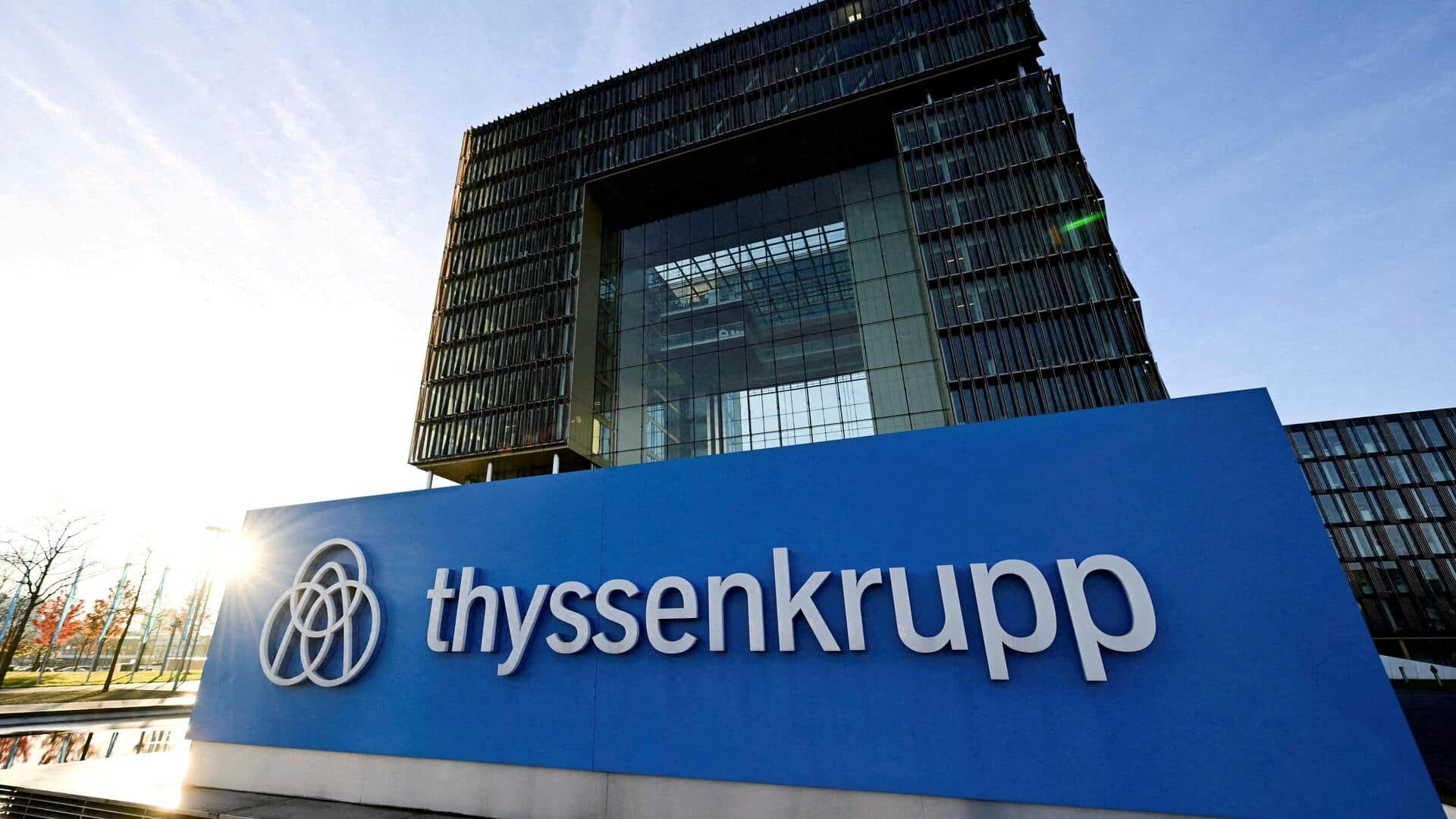
Beleaguered German steel giant Thyssenkrupp to slash 11,000 jobs
What's the story
Germany's largest steelmaker, Thyssenkrupp Steel Europe (TKSE), has announced a major cut in its workforce by 2030. The company plans to cut around 11,000 jobs, which is nearly 40% of its total workforce. The move comes as part of a larger restructuring strategy to improve the firm's productivity and operational efficiency.
Strategy details
Job cuts and production reduction: A two-pronged approach
The job cuts will be carried out in two phases. First, 5,000 jobs will be cut by 2030. Another 6,000 positions will be phased out through business sales or transfers to external service providers. The company's restructuring plan also involves a reduction in production capacity from the current 11.5 million metric tons to a future target of 8.7-9 million metric tons.
Facility changes
Plant closures and sales part of restructuring
As part of its restructuring strategy, TKSE has announced the closure of its processing site in Kreuztal-Eichen. The company is also considering selling its plant in Duisburg, Huettenwerke Krupp Mannesmann. If a sale doesn't materialize, discussions with other shareholders regarding potential closure scenarios will be initiated. These measures are seen as necessary steps toward achieving a competitive cost level amid market challenges.
Opposition
Union resistance and industry-wide challenges
The proposed job cuts have drawn opposition from IG Metall, a leading union in the western state of North Rhine Westphalia. "Anyone who wants to cut over 11,000 jobs and close a site must expect fierce resistance from IG Metall," warned Knut Giesler, head of the union. The resistance comes as other major German companies such as Volkswagen are also considering factory shutdowns amid economic pressures.
Financial woes
Thyssenkrupp's financial struggles and market valuation
Earlier this month, Thyssenkrupp devalued its steel division by another €1 billion ($1.1 billion), citing a worsening sector outlook. The company is now worth €2.4 billion in the group's books, less than half of its value two years ago. These financial woes underscore the increasing challenges facing Europe's largest economy and its industrial sector amid global economic uncertainties.